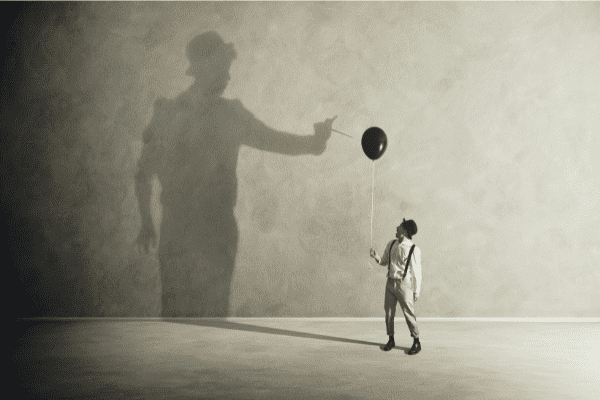The problem of the problem
Even if you don't like it, problems will accompany you throughout life. As a small child, not getting a second ice cream can be a problem. And as an adult, not knowing how to fit all your appointments into the calendar. But even if the size and difficulty of problems vary greatly, the problem in and of itself is something that accompanies us from birth to the grave.
As I was driving home from work the other day, it occurred to me that I had a lot of things to do that day and I wasn't sure if I would get everything done. I kept repeating in my head how I was going to tackle these errands. But the more I repeated it, the more mistakes and problems I noticed. At one point I didn't feel like doing any of the things I had to do, because the sheer amount of things I had to do was too much. So the problem now was much less my to-do list, but rather my attitude towards it. Fortunately for me, I then noticed this relatively promptly, which is why I told myself that I would simply get as much done as I could manage with the best conscience. This shift in my thinking helped me face my list with my chest lifted.
Only by overcoming problems can we grow as individuals. If we were always to get a wish fulfilled just by expressing it, we would never learn how to work it out on our own. The more problems we solve in our lives, the more we understand how the nature of existence works. If we want to become fitter, we have to get our butt off the sofa. If we want to learn something new, we need to stick our nose in books. If we want to eat something delicious, we have to stand at the stove. The more problems we solve on our own, the better equipped we are for upcoming problems and difficulties. Often we can apply similar solutions to different problems. This ensures that the more problems we solve, the better we become at solving new problems more efficiently.
What I usually realize only after solving a problem is that it is rarely the problem that really causes me trouble. In retrospect, one often sees with astonishing clarity that it was the attitude toward the problem that made the problem so big in the first place. We get stuck on a single approach to solving the problem instead of considering different ones. But that is precisely what is advisable. After all, there is hardly any task that can be solved in only one way. Mahatma Gandhi once said, That we should keep our focus on the solution and not on the problem. When we do this, we usually think of other solutions. If, on the other hand, we focus on the problem, we usually think of other problems as well.
In short, it is rarely the problem that is really the problem, but rather our rigid view of it.
If we begin to see the task as an opportunity to achieve personal growth, we may even find pleasure in solving problems. After all, there is something more than satisfying in looking back on a solved problem and wondering why we didn't tackle it sooner. Solving problems is usually not as complicated as it seems, because as Confucius said: "Life is really simple, but we insist on making it complicated."
What is your opinion on this subject? Have you noticed that it's often the attitude towards the problem that makes it so difficult to solve? Feel free to share your experiences with us in the comments.







